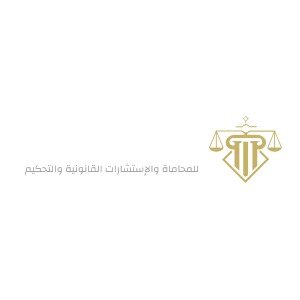Best Water Law Lawyers in Hashemite Kingdom of Jordan
Share your needs with us, get contacted by law firms.
Free. Takes 2 min.
Or refine your search by selecting a city:
List of the best lawyers in Hashemite Kingdom of Jordan
About Water Law in Hashemite Kingdom of Jordan
Water Law in the Hashemite Kingdom of Jordan encompasses the legal framework and regulations that govern the use, allocation, management, and conservation of water resources. Jordan is one of the most water-scarce countries in the world, making water regulation a crucial national priority. The legal system addresses a range of topics such as water rights, irrigation, public and private use, and the responsibilities of various governmental and private parties regarding water resources. Water Law is primarily regulated by ministry-issued bylaws, royal decrees, and statutory acts, often updated to reflect the changing needs imposed by population growth and climate considerations.
Why You May Need a Lawyer
Legal assistance in Water Law is vital due to the complexity and importance of water resources in Jordan. Here are common scenarios where individuals, businesses, or organizations may require a lawyer:
- Disputes over water rights or allocation between landowners, neighbors, or agricultural operators
- Compliance issues with water extraction, use limits, or environmental standards
- Dealing with penalties or enforcement actions from government agencies like the Ministry of Water and Irrigation
- Obtaining permits or licenses for drilling wells, irrigation systems, or water-based projects
- Negotiating contracts related to water supply or service agreements
- Representation in cases involving pollution or contamination of water resources
- Guidance in understanding new or revised water laws and regulations that may impact business or land use
Local Laws Overview
Water Law in Jordan is built on key legislative and regulatory instruments, including the Water Authority Law No. 18 of 1988, the Groundwater Control Bylaw, and the Jordan Valley Authority Law. Some of the most relevant aspects include:
- All water resources, including surface and groundwater, are considered public property under state supervision
- Extraction from wells and major water projects require prior permits and regular reporting
- Limits and quotas are imposed to prevent over-extraction and depletion of water tables
- Punishments exist for illegal drilling or unauthorized water usage, such as fines, seizure of equipment, and possible criminal charges
- Environmental protection regulations prohibit contamination, pollution, or misuse of water resources
- The Ministry of Water and Irrigation is the central authority responsible for managing resources, issuing permits, and resolving disputes
- Conditional allowances exist for private wells, but they are highly regulated and subject to monitoring
Frequently Asked Questions
What is the legal definition of water rights in Jordan?
Water rights in Jordan refer to the permission granted by the government to individuals or entities to use a specified amount of water from particular sources, either from public networks, wells, or irrigation systems. All rights are ultimately subject to state oversight.
Who regulates water use in Jordan?
The Ministry of Water and Irrigation, along with affiliated agencies such as the Water Authority of Jordan and the Jordan Valley Authority, are the main regulatory bodies responsible for overseeing use, allocation, and conservation.
Is it legal to drill a private well in Jordan?
Drilling a private well is only legal with a permit from the Ministry of Water and Irrigation. Unauthorized drilling is strictly prohibited and subject to significant penalties.
What are the penalties for illegal water use?
Penalties can include hefty fines, confiscation of pumps or drilling equipment, forced closure of illegal wells, and in some cases, criminal prosecution.
How are water disputes resolved?
Water disputes are usually resolved either administratively by the Ministry of Water and Irrigation or through court proceedings if parties cannot reach an agreement.
Are there restrictions on water use for agriculture?
Yes, the government sets annual quotas for agricultural water use to conserve resources. Farmers must apply for licenses and adhere to assigned limits.
Can foreign investors or companies access water for industrial projects?
Yes, but foreign entities must comply with the same permit and allocation requirements as local companies, and are sometimes subject to stricter scrutiny.
Does Water Law address environmental protection?
Jordan’s Water Laws contain several provisions aimed at preventing the pollution and degradation of water resources, including regulations for industrial and agricultural waste management.
What should I do if I receive a violation notice related to water use?
Seek legal advice immediately to understand your options, dispute the notice if applicable, and ensure compliance to avoid escalating penalties.
Where can I apply for a water use or drilling permit?
Applications are submitted to the Ministry of Water and Irrigation or through relevant local offices. Requirements vary depending on the nature and location of the project.
Additional Resources
For further information or assistance, consider reaching out to the following institutions and organizations:
- Ministry of Water and Irrigation
- Water Authority of Jordan
- Jordan Valley Authority
- The Jordanian Bar Association for legal specialist referrals
- Local NGOs focused on water rights and environmental protection
- University or academic research centers specializing in water resources
Next Steps
If you need legal advice or assistance regarding Water Law in the Hashemite Kingdom of Jordan, here are practical steps to follow:
- Gather all relevant documents, including permits, correspondence, and any notices received
- Contact the Ministry of Water and Irrigation for information about your specific concern
- Consult a lawyer with expertise in Water Law to assess your case and explain your rights and obligations
- Review your situation with your legal counsel before taking any action, especially in cases of disputes, penalties, or potential violations
- If necessary, pursue formal processes for appealing decisions or defending your interests in court
Early intervention by a knowledgeable lawyer can help clarify regulations, prevent costly mistakes, and ensure your activities remain compliant with Jordanian Water Law.
Lawzana helps you find the best lawyers and law firms in Hashemite Kingdom of Jordan through a curated and pre-screened list of qualified legal professionals. Our platform offers rankings and detailed profiles of attorneys and law firms, allowing you to compare based on practice areas, including Water Law, experience, and client feedback.
Each profile includes a description of the firm's areas of practice, client reviews, team members and partners, year of establishment, spoken languages, office locations, contact information, social media presence, and any published articles or resources. Most firms on our platform speak English and are experienced in both local and international legal matters.
Get a quote from top-rated law firms in Hashemite Kingdom of Jordan — quickly, securely, and without unnecessary hassle.
Disclaimer:
The information provided on this page is for general informational purposes only and does not constitute legal advice. While we strive to ensure the accuracy and relevance of the content, legal information may change over time, and interpretations of the law can vary. You should always consult with a qualified legal professional for advice specific to your situation.
We disclaim all liability for actions taken or not taken based on the content of this page. If you believe any information is incorrect or outdated, please contact us, and we will review and update it where appropriate.
Browse water law law firms by city in Hashemite Kingdom of Jordan
Refine your search by selecting a city.















